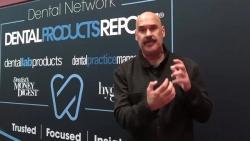- About Us
- Advertise
- Editorial
- Contact Us
- Terms and Conditions
- Privacy Policy
- Do Not Sell My Personal Information
© 2025 MJH Life Sciences™ and Dental Products Report. All rights reserved.
What Should They Teach More of in Dental School?
Let’s imagine a world where dental schools want suggestions on what to include in their curriculums. What would benefit new dentists most? We asked our editorial advisory board to weigh in, and here’s what they said.
Dental school is jam-packed with courses that teach essential clinical skills. But what if there was room for another course? What would be the most beneficial to today’s clinicians? We asked our editorial advisory board to weigh in, and here’s what they suggest.
Taking Care of Business
John Flucke, DDS, technology editor and chief dental editor at Dental Products Report, says that his generation could have used more business advice. While he could do OK dentistry when he graduated, Dr Flucke knew nothing about running a business. Luckily, Dr Flucke’s dad did, which helped enormously.
“How to write a business plan and determine expenses and revenue are essential for dentists to understand, particularly when it’s time to go to the bank for a loan,” Dr Flucke says.
Speaker and educator Jeffrey Lineberry, DDS, AAACD, has a private practice in North Carolina and agrees that business, specifically a business planning course, would help young clinicians. For example, dental schools could give objective pros and cons regarding the different ways a clinician can practice.
“What I am finding now is some schools talk more about the corporate world and others about the private practice world, and, like everything else in life, one size doesn’t fit all,” Dr Lineberry says.
Dr Flucke also likes the idea of dental schools presenting career options. Sometimes dentists don’t realize the implications of their decisions right out of school.
For example, young doctors with dental school debt want to earn money as soon as possible. An attractive option is to work as an associate for a dental service organization (DSO). However, once they start making money, it can be difficult to leave. If a DSO career is what a dentist wants, then there is no problem, but if not, it could be a different story. Having those scenarios presented early can help avoid conflicts later.
“Not to be anticorporate, because they have their place, and there is room for everything,” Dr Flucke says. “But I think it would be nice to know how to manage these situations if that career path is not your long-term goal.”
Jason Goodchild, DMD, has a different perspective regarding business training in dental school. In addition to being a practicing dentist and the vice president of clinical affairs at Premier Dental Products Company, he is also an associate clinical professor in the Department of Oral and Maxillofacial Surgery, Creighton University School of Dentistry, in Omaha, Nebraska, and an adjunct assistant professor in the Department of Diagnostic Sciences, Rutgers School of Dental Medicine, in Newark, New Jersey. He thinks that on the one hand, learning about business is not the purpose of dental school, but on the other, saying nothing about it isn’t right either.
Dr Goodchild thinks offering business courses as electives could be a practical way to address the subject. However, they shouldn’t be part of the mandatory curriculum that everyone takes.
“Some people might want to be in public health or research, so those courses wouldn’t necessarily apply to them,” Dr Goodchild explains.
Soft Skills Shouldn’t Get the Hard Pass, Either
Sarah Jebreil, DDS, AAACD, says psychology and the art of managing patient personalities is an area where dental schools could spend more time with dental students. She says that clinicians’ communication styles can make or break a patient’s experience, and an understanding of psychology facilitates that. Moreover, it helps a clinician understand why patients who seem difficult might behave the way they do and how to manage interactions with them.
“A lot of psychological work is needed to understand these different patient psyches and to communicate with them. We always talk about different ways to communicate effectively,” Dr Jebreil explains, “but ‘effectively’ is different for each patient’s personality.”
Dr Jebreil, a member of the Dental Products Report editorial advisory board, thinks soft skills training might also enhance team member selection and management. It also helps clinicians identify patients who might not be a match for their practice and clinical style and gives dentists the language to help them direct the patient to find a better fit. While programs for clinicians cover these areas after graduation, Dr Jebreil would like to see dental schools teach this from the beginning to avoid newbie mistakes in case selection.
“As a new dentist, we are so excited to do work and get to practice. But you want to be careful about who you commit yourself to,” she explains.
“You can be a technically good dentist, but if you can’t form relationships and build rapport and make people feel comfortable and work with a team, it’s hard to translate those clinical skills into something meaningful in practice—unless you’re working on unconscious patients all day,” Dr Goodchild affirms. “But since patients walk in with fears and anxieties and expectations and past experiences, being able to deal with them as people could really help.”
How to Manage Debt
Managing debt is a concern for newly graduated dental students. International speaker and mentor Ankur Gupta, DDS— also a member of the Dental Products Report editorial advisory board—graduated 20 years ago with a significant amount of debt, which he describes as high for the time. Today, it is not unusual for people to graduate with even more debt than he did.
The situation was also compounded by his other financial obligations at the time. Dr Gupta took out a practice start-up loan from the bank and bought a house with his wife. The debt was stressful for him.
Dr Gupta would like dental schools to address debt management with students before they graduate, so they don’t feel the psychological pressure he did about his debt after graduation.
“A lot of kids are graduating and they’re going to have quite a bucket of money that they owe,” he says. “There are so many nice strategies on how to live life in such a way where you can be financially free and never feel financially desperate.”
Dr Gupta learned a spending strategy from a podcast that helped him get out of debt. He often thinks about how different his life would be today if he hadn’t stumbled upon that episode and embraced paying off debt. He would like to see dental students today get more formal counseling from financial experts rather than leaving it up to chance.
“One class in dental school where a reasonable adult could tell students what their options are in terms of lifestyle would help,” Dr Gupta says.
Along those lines, Dr Lineberry would love to see mentor programs embedded in dental schools to deepen dental students’ education faster. A mentor can help point a clinician in the right direction for education, practice management, and career path. Dr Lineberry says dental school doesn’t cover all the things that come up in real dental practices. Young clinicians could benefit from having someone to contact for help or guidance when needed.
“It’s like going to someone who has ridden a bike many times, and you have never ridden one or only ridden it once. The mentor can help further the student’s education quicker,” he says. “A good mentor can also be there to support them not only from the standpoint of teaching them dental but also bouncing ideas off somebody who has had various experiences.”
Emphasize the Lifelong Learning Aspect of Dentistry
Dr Lineberry thinks dental students should consider dental school as the beginning of their education. Education is a process for the entirety of the clinician’s career.
“Your license is like a permit that lets you learn for the rest of your life,” Dr Flucke agrees.
“Dental school is just the beginning, and then you have to continue to move forward,” Dr Goodchild adds.
Dr Lineberry thinks dental schools could facilitate this concept by introducing their final-year students to educational opportunities outside of dental school.
“Expose them to things like the Academy of General [Dentistry], Spear Education, the Pankey Institute, or any other educational opportunities out there,” Dr Lineberry says.
Dr Flucke thinks mapping continuing education paths for newly graduated dentists with specific clinical goals could also help. For example, if a dentist wants to do root canals or get into dental implants, schools could provide a continuing plan to get them there from vetted programs.
“You have to continue learning, which I am a huge believer in. But things can be so overwhelming, like what to learn or how to learn,” Dr Flucke says. “It would help if [schools] would guide them.”
Dr Lineberry says a dental reality class could also be excellent for dental students. He wants new clinicians to know that nobody is a perfect dentist, and everyone makes mistakes. Embracing that fallibility early in their career and learning to support other clinicians, who, for the most part, try to do the right things for the right reasons, are areas that could benefit young dentists.
“We need to embrace one another,” Dr Lineberry says, “not try to tear each other down when we make mistakes. What we should do as a profession is work toward furthering the overall education and the profession, not criticizing other clinicians’ work.”
“A lot of dentists are very quick to comment on previous work,” Dr Jebreil states. “It is important to back up your profession, and we shouldn’t assume anything.”
Dr Lineberry says in the absence of a class like that, dental school students should create a network of people who support them and help young clinicians get through a bad clinical day.
“If what God put in there doesn’t last, how can I, as a human, do better? You can’t. Things fail,” Dr Flucke says in agreement. “Physicians are taught that no matter how well you perform, your patient will die sometimes. Because of that, they learn what they can from that and then move on. Dentistry could use a lot more of that.”
A Couple of Clinical Things, Too
Clinically, Dr Flucke would like dental schools to explore caries detection more with young clinicians. From the technology available to leveraging the utility of various software systems to determine a proper treatment plan, he thinks these skills benefit the inexperienced. Additionally, these conversations are essential to young clinicians to help them prepare for innovation and disruption in the standards of care.
“It’s important at some point to talk about where things are going in dentistry,” Dr Flucke says.
Also, writing good clinical notes is vital. Dr Flucke has served as a state peer review chairman for over 20 years and has reviewed many cases where things were problematic. He noticed often that the notes were either illegible or minimal. He says clear notes with a diagnosis and details about the procedure and any discussions with the patient can be critical.
“Even something as simple as [a note like] ‘caries was very deep, no exposure but advised the patient that this tooth may need a root canal in the future’ can help immensely in the future,” Dr Flucke says.
Also, dental students and every clinician should know their limitations and when to refer a case. Per Dr Flucke, even a clinician with the best intentions tries to help by pushing the envelope of what they can do and ends up “in the soup.”
“We all have an inner voice that we usually listen to,” he says. “But, occasionally, we override it. Doctors should know when they hear that voice, or if they have doubts in their ability to provide the best outcome, there is no shame in handing the case off to others.”
Dr Gupta would also like to see dental schools teach new dentists about implant overdentures. He likes how accessible they are for patients and how much they improve the patient experience over traditional dentures.
However, Dr Gupta says few dentists feel comfortable doing them because they didn’t learn how in dental school. As a result, few patients even know they exist and instead only hear about traditional dentures or an all-on-6 implant system that few patients can afford.
“Anybody who is facing partial or full edentulism should at least know this option exists, and there [are] too many people who don’t because the dentist doesn’t feel comfortable with them,” Dr Gupta says.
Dr Gupta wants every dental student to know how to do implant overdentures because of the improvements these treatments make in patients’ lives. Delivering them to his patients has made him feel personally and professionally uplifted.
“There’s not been one procedure in my entire career that’s been as gratifying as this or that has made me feel like I made this person’s life better,” Dr Gupta says. “I don’t think that it is OK that just a random group of people who happen to come upon a CE course about them are the ones who know how to do this. Everybody should know how to do them.”
Dental schools have integrated digital dentistry technology into the curriculum, but there remain areas recent graduates have told Dr Goodchild they would like to learn more about. For example, one graduate said he would like to understand how to read CBCTs and the material science that explains how to achieve a better bond in specific situations.
“If you can understand the why of using something, you can match up for the best possible outcome,” Dr Goodchild says.
That said, curriculum planning is a complex process, and one Dr Goodchild has seen firsthand. When you add something in, you have to take something out or pack more in less time.
“Then it becomes incumbent upon the learner to then fill in the gaps because they can’t do everything,” he explains.
That said, Dr Goodchild would have dental schools explain some of the other pathways in dentistry. For example, careers in public health, teaching, and research could use more class time. Additionally, he would have them teach dentists how to be better public servants and treat the underprivileged through federally qualified health centers.
“The world is big. There [are] lots of things to do in dentistry, and that’s exciting,” Dr Goodchild says. “We need teachers and people working in public service, and those are important parts, too.”



